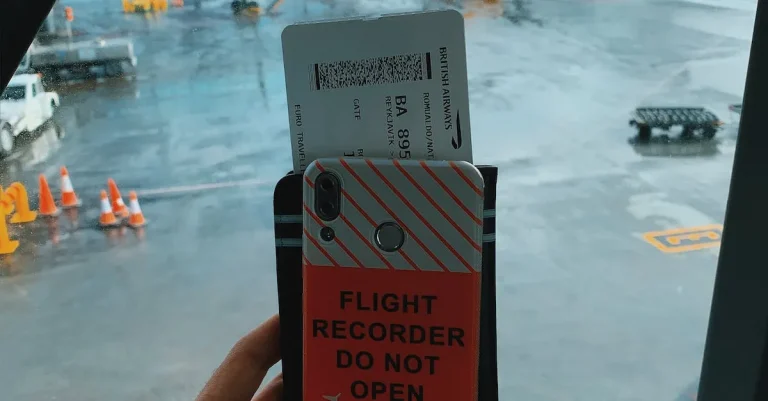The Caucasus region is home to a diversity of cultures and languages. If you’re planning a visit to the country of Georgia, you may be wondering: what language do Georgians speak?
If you’re short on time, here’s a quick answer to your question: The official language spoken in Georgia is Georgian, also known as Kartuli, or Kartvelian.
However, many Georgians also speak English and Russian as second languages.
In this comprehensive guide, we’ll dive deep into the languages spoken in Georgia. You’ll learn more about the Georgian language, its writing scripts, regional dialects, the role of Russian, and tips for communicating during your visit.
An Overview of the Georgian Language
Georgian, the official language of Georgia, is a fascinating and unique language that has a rich history and a complex structure.
With its distinct writing system, grammar, and pronunciation, Georgian stands out among other languages in the world.
In this article, we will delve into the origins and history of Georgian, explore its unique writing system, and take a closer look at its complex grammar and pronunciation.
Origins and History of Georgian
The Georgian language has a long and storied history, with roots dating back over 2,000 years.
It belongs to the Kartvelian language family, which is native to the Caucasus region.
Georgian is believed to have evolved from Proto-Kartvelian, the ancestral language of the Kartvelian family.
Throughout its history, Georgian has been influenced by various languages, including Greek, Persian, Arabic, and Russian.
These influences have shaped the vocabulary and grammar of the language, giving it a unique character.
Unique Writing System: Georgian Scripts
One of the most distinctive features of the Georgian language is its writing system, which uses three scripts: Mkhedruli, Nuskhuri, and Asomtavruli.
The other two scripts, Nuskhuri and Asomtavruli, are older and less frequently used. Nuskhuri was traditionally used for religious texts, while Asomtavruli was used for inscriptions and manuscripts. T
ogether, these three scripts create a visually stunning writing system that is unique to Georgian.
Complex Grammar and Pronunciation
Georgian grammar is known for its complexity, with a rich system of noun declensions, verb conjugations, and grammatical cases.
The language has six grammatical cases, which are used to indicate the roles of nouns in a sentence.
This intricate grammar system allows for precise expression and nuance in Georgian.
Pronunciation in Georgian can also be challenging for non-native speakers.
The language has a number of unique sounds, including consonant clusters and ejective consonants.
Mastering the correct pronunciation requires practice and patience, but it is well worth the effort.
Georgian Dialects Across Regions
Georgia, a country located in the Caucasus region of Eurasia, is known for its rich linguistic diversity.
The official language of Georgia is Georgian, which serves as the lingua franca for the majority of its population.
However, within the country, there are several distinct dialects that vary across different regions.
These dialects not only showcase the linguistic diversity of Georgia but also reflect the cultural nuances and historical influences that have shaped the language over time.
Imeretian in the West
In the western part of Georgia, particularly in the region of Imereti, the Imeretian dialect is widely spoken. This dialect is characterized by its unique phonetic features, vocabulary, and grammatical structures.
Speakers of the Imeretian dialect often have a distinct accent and pronunciation compared to speakers from other regions.
The Imeretian dialect has its own colloquialisms and idiomatic expressions, which add a touch of local flavor to the language.
Kakhetian in the East
In the eastern part of Georgia, particularly in the region of Kakheti, the Kakhetian dialect holds prominence.
This dialect is characterized by its distinct phonological patterns, vocabulary choices, and grammatical structures.
Speakers of the Kakhetian dialect often have a unique way of pronouncing certain sounds, which sets them apart from speakers of other Georgian dialects.
The Kakhetian dialect has been influenced by the historical and cultural interactions with neighboring regions and languages.
It incorporates elements from the Persian and Russian languages, reflecting the historical connections between Georgia and its neighboring countries.
Distinct Accents and Colloquialisms
Aside from the regional dialects, Georgia is also known for its distinct accents and colloquialisms. The way people speak in different parts of the country can vary significantly, even within the same dialect.
These variations in accents and colloquialisms contribute to the linguistic tapestry of Georgia and add depth to the language.
For instance, in the mountainous regions of Georgia, such as Svaneti, speakers may have a more pronounced accent and use colloquial phrases specific to their locality.
Similarly, in the coastal areas, such as Adjara, the accent and speech patterns may differ from those in the central regions of the country.

The Prevalence of Russian in Georgia
Georgia, a country located in the Caucasus region of Eurasia, is known for its rich cultural heritage and diverse linguistic landscape.
While the official language of Georgia is Georgian, there is a significant presence of other languages, including Russian.
The prevalence of Russian in Georgia can be attributed to various historical and sociopolitical factors.
History of Russian Colonization
Russian colonization of Georgia began in the early 19th century when the Russian Empire expanded its territories into the Caucasus region.
As a result, Russian became the language of administration, education, and communication for the region.
The influence of Russian in Georgia was further strengthened during the Soviet era when the country was part of the Soviet Union.
Therefore, the high level of proficiency was mainly due to the compulsory Russian language education in schools and the extensive use of Russian in various domains of public life.
Decline After Regaining Independence
After gaining independence from the Soviet Union in 1991, Georgia experienced a shift in its linguistic landscape.
The country embarked on a path of nation-building and cultural revival, with a renewed emphasis on the Georgian language and culture.
Consequently, the use of Russian declined, especially among the younger generations.
This decline can be attributed to the increasing importance of the Georgian language, as well as the growing influence of English as a global language.
Russian Still Spoken by Older Generations
While the use of Russian has declined among the younger generations in Georgia, it still remains prevalent among the older population.
Many elderly Georgians continue to use Russian as their second language, particularly in rural areas or among those who have lived through the Soviet era.
English Proficiency in Georgia Today
English proficiency in Georgia has been on the rise in recent years. As a result of globalization and the increasing importance of English as a global language, many Georgians recognize the importance of being able to communicate effectively in English.
English Education in Schools
English education in Georgian schools has become more widespread and accessible. English is now taught as a compulsory subject in most schools across the country.
The curriculum is designed to develop students’ reading, writing, listening, and speaking skills in English.
Moreover, the Georgian government has implemented various programs to improve the quality of English education, including providing training for English teachers and supplying schools with up-to-date English language materials and resources.
Higher Levels in Urban Areas and With Youth
English proficiency tends to be higher in urban areas and among the younger generation in Georgia.
Cities like Tbilisi, Batumi, and Kutaisi have seen a significant increase in English fluency due to the higher concentration of international businesses, tourism, and educational institutions.
Younger Georgians, who have grown up in an era of increased exposure to English through the internet, music, movies, and travel, tend to have a better grasp of the language.
English Essential for Tourism Industry
English proficiency is particularly crucial in the tourism industry in Georgia.
With the country’s growing popularity as a tourist destination, the ability to communicate in English has become an essential skill for those working in the hospitality, transportation, and service sectors.
Tourists from various parts of the world expect to be able to communicate in English when visiting Georgia, and being able to do so enhances their overall experience.
Therefore, many Georgians working in the tourism industry have prioritized improving their English skills to cater to the needs of international visitors.
Tips for Communicating in Georgia
Georgia, a beautiful country nestled between Europe and Asia, has a unique language that sets it apart from its neighbors.
While many Georgians do speak English, especially in tourist areas, it’s always helpful to have some basic knowledge of the local language when visiting.
Here are some tips for communicating in Georgia:
Learn Key Georgian Phrases
Learning a few key Georgian phrases can go a long way in breaking the ice and showing respect for the local culture.
Simple greetings like “gamarjoba” (hello), “madloba” (thank you), and “nakhvamdis” (excuse me) can make a big difference in your interactions with the locals.
Additionally, knowing how to ask for directions or order food in Georgian can make your experience in Georgia even more enjoyable.
Carry a Translation Dictionary
If you’re planning to explore the less touristy areas of Georgia or have in-depth conversations with locals, carrying a translation dictionary can be immensely helpful.
While smartphones and translation apps have become increasingly popular, having a physical dictionary can be a lifesaver in areas with limited internet access.
It’s a great way to bridge the language barrier and ensure smooth communication.
Download a Translation App
For those who prefer the convenience of technology, downloading a translation app on your smartphone can be a game-changer.
There are several user-friendly apps available that can help you translate Georgian words and phrases in real-time.
Some apps even offer audio pronunciation guides, making it easier to learn the correct pronunciation. With just a few taps on your phone, you can have a conversation with a local in their native language.
Remember, making an effort to communicate in the local language shows respect for the culture and can lead to more meaningful interactions during your visit to Georgia.
So, whether you choose to learn a few phrases, carry a translation dictionary, or rely on a translation app, embracing the local language will enhance your travel experience.
Conclusion
While Georgian remains the official language of Georgia, many locals can speak Russian and English as second languages, especially in larger cities.
Learning a few key Georgian phrases will go a long way when interacting during your travels.
We hope this guide gave you great insight into the languages spoken by Georgians. Armed with this knowledge, you’ll be well prepared to communicate and immerse yourself in the rich culture of Georgia!






